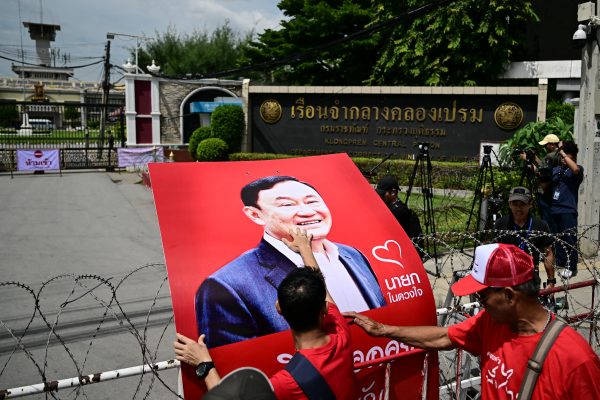Thai public cleared to participate in charter change, but roadblocks lie ahead

The review of two charter draft bills has been completed, paving the way for changes to the 2017 Constitution that is at the heart of Thailand’s political impasse.
However, critics doubt the charter rewriters will be free from political interference.
Last November, lawmakers passed the two charter amendment drafts in the first reading. The drafts pave the way for a Constitution Drafting Assembly (CDA) to write a new charter, but stipulate that chapters on the monarchy and general provisions be left untouched.
The review panel agreed on three contentious points in the drafts.
First, all 200 CDA members will be elected by the public in provincial polls. The number of members from each province will depend on its size.
This contrasts with the 2017 charter, which was written by a junta-appointed panel.
The elected CDA will be given 240 days to rewrite the charter.
Second, the votes needed to pass a charter amendment will be increased, making it more difficult to change the Constitution. The number of votes will be raised from a simple parliamentary majority to two-thirds in the first and third readings. But the panel agreed with removing clauses stipulating at least one-third of senators and 20 per cent of opposition MPs are needed to pass charter change.
Third, the CDA’s new charter must be passed by the public in a referendum.
The move to amend the Constitution followed mounting pressure on the government from youth-led protesters calling for the resignation of Prime Minister Prayut Chan-o-cha, a more democratic Constitution and reform of the monarchy. Critics say certain provisions in the charter are “undemocratic” and designed to enable Prayut to retain power following his 2014 coup as Army chief.
‘Illuminati’ accuser returns to haunt Thailand’s progressive Move Forward Party
Move Forward or Kao Klai is a reincarnation of the now-defunct Future Forward Party, which was dissolved by the charter court in February last year for receiving an illegal loan. Some 50 MPs of the defunct party who were spared a 10-year ban from politics joined Move Forward.
‘Too little, too late’
Review panel secretary Nikorn Chamnong said the draft revision was a “reconciliatory” move towards ending political deadlock as it allows the public to elect the CDA and vote on the new charter draft.
The panel’s decision came from a compromise between representatives of the government, opposition MPs and senators, said the MP from the ruling coalition’s Chart Thai Pattana party.
Yuthaporn Issarachai, a political scientist from Sukhothai Thammathirat Open University, doubts whether the public vote to elect CDA members will guarantee they are politically independent.
“Having an all-elected CDA reflects public participation, but it may still be dominated by politicians or canvassers [as in a general election],” Yuthaporn said.
He suggested that lawmakers limit the role of the CDA to a “communicator” that conveys messages to the public to avoid interference from politicians.
The analyst was also sceptical the amendment bill would ease the ongoing conflict.
“I think it is too late [to use the bill] to compromise with protesters. In the end, the charter will be altered to benefit lawmakers, not bring about true reform,” he added.
The protesters’ favoured draft bill, which allowed changes to chapters on the monarchy and general provisions, was rejected by Parliament in November.
Taboo subject of monarchy set to spark pandemonium in Thai Parliament
Involving the monarchy in the no-confidence motion has sparked angry accusations from the government camp that this constitutes a grave insult to the revered institution. However, observers say opposition parties have every right to bring up the topic since the censure motion accurately describes the government’s misconduct.
The pitfalls ahead
The second reading of the revised charter amendment draft bill will be held on February 24-25. Each article of the draft will require a “yay” from the majority.
The third reading will be held 15 days later with voting expected in mid-March. In the third reading, the bill will require support from more than half of Parliament or 376 members, including yes votes from at least 84 senators and 43 opposition MPs.
If it passes, the bill will be put to a national referendum as it involves changes to the process of amending the Constitution.
However, this process could also be blocked by a legal challenge.
A group of senators and ruling Palang Pracharath MPs have submitted a parliamentary motion seeking a Constitutional Court ruling on whether amendments paving the way for a charter rewrite are constitutional. The group claims the current Constitution allows the amendment of its articles, but does not allow the drafting of a new charter.
Parliament is due to consider the motion on Tuesday (February 9). If it votes to seek a court review, and if the charter court accepts the case and rules that Parliament is not authorised to write a new charter, then the draft bill will be voided.
By Thai PBS World’s Political Desk






